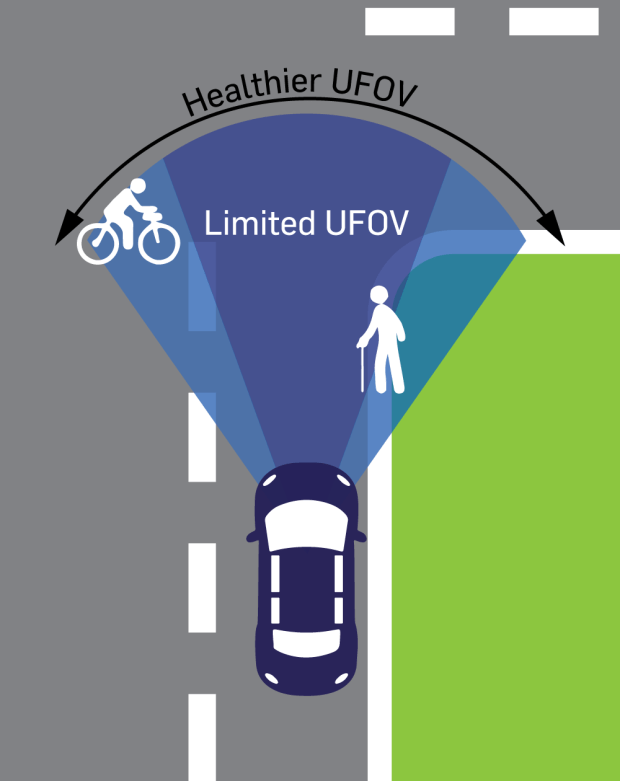The ultimate in transfer from brain training to real-world outcomes: Reducing the risk of at-fault accidents by almost 50%
 ___
___
Can you train your brain to drive longer into your golden years? (CTV News):
“For the elderly, the loss of a driver’s licence could mean the end of independence and the beginning of a decline in health, with far-reaching consequences in their daily lives…New assistive driving technologies seem like an obvious solution in the years to come, but buying new vehicles can be too expensive; while options like going for adult driving lessons can be too great a blow to some seniors’ pride. Now, scientists claim that there’s another option available to help older drivers maintain their abilities on the road.
Cognitive training games like those available from companies like Posit Science or Cognifit claim to be able to make you a better driver through online exercises that take only minutes a day to complete…they offer exercises that specifically target mental abilities like attention, processing speed, and navigation, which directly affect a person’s driving abilities, rather than merely showing an increase in general motor skills…Researchers found that the use of brain training games designed to improve speed of processing had the greatest effect on participants, reducing the risk of at-fault accidents by almost 50 per cent over a six-year follow-up period. They also found that participants who did speed of processing training were 40 per cent less likely to cease driving over the subsequent three years than those who were in the control group.
“And you have to keep in mind people were doing between ten and 18 hours of training,” said Ross, “and we’re finding those effects – that’s huge.”
While the results of brain training seem promising, it’s important for potential users to be discerning — not all brain training is created equally…Users need to determine what skills they as an individual need to improve, then find a program that fits, and is backed by reputable research. SharpBrains, an independent brain science applications market research firm, is one resource that can be useful, offering a ten point checklist to help evaluate whether a brain training program is right for you.
Above all, Ross recommends that potential users do their research before committing to any one product – much like physical exercise, cognitive training is not a one-size- fits-all situation.”
News in Context
- 10 neurotechnologies about to transform brain enhancement and brain health
- Learn about cognition and mental self-rotation with these quick brain teasers
- Why you turn down the radio when you’re lost
- Can brain training work? Yes, if it meets these 5 conditions
- What are cognitive abilities and how to boost them?
- Solving the Brain Fitness Puzzle Is the Key to Self-Empowered Aging



Having contacted the author (Dr. Lesley Ross) interviewed and read carefully her two most recent articles on cognitive training programs in driving cessation, I am impressed by the promise of her research. However, I find the summary above confuses what she found and what Sharpbrains would like to be. I would further suggest that the Brain Training Evaluation List amend item 1 to state that the researchers are independent of brain-training programs which they are evaluating. See my most recent two blog pieces for additional thoughts.
Hi David,
Some good suggestions there — would you like to contribute a brief article to SharpBrains based on your interaction with Dr. Ross and your review of those relevant papers? Just contact me if you’re interested :-)
Thank you for posting. Training the brain for different tasks (whaterever those may be) requires effort but is a rewarding process.